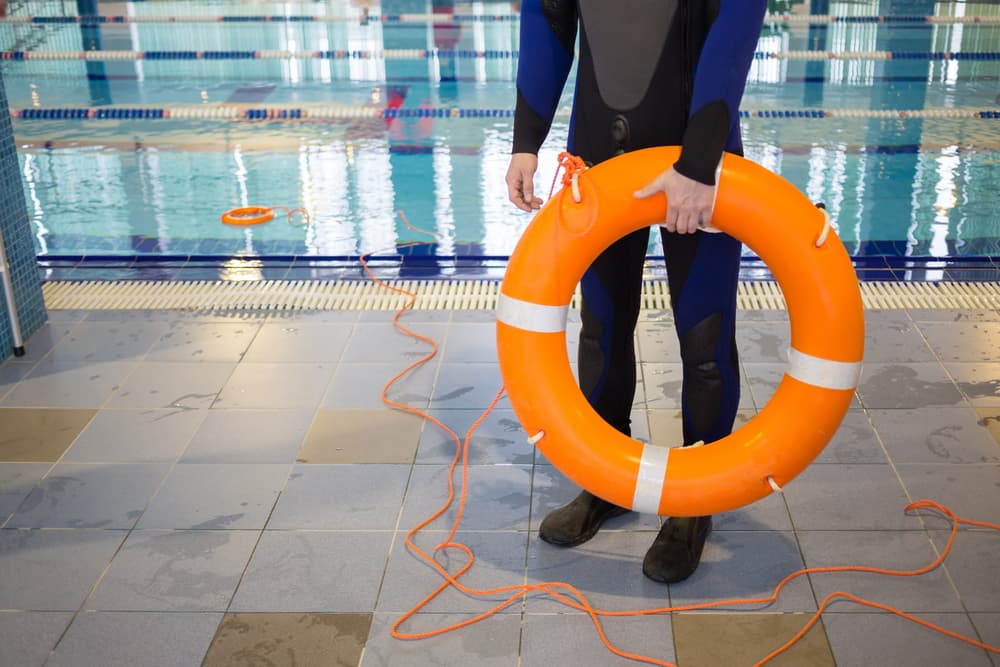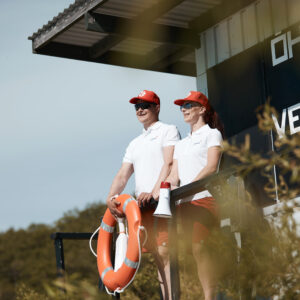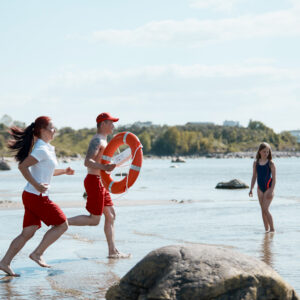LOUHE and Forus Partner to Revolutionise Security Solutions in the Baltics

For providing lifeguard services on a beach (employing certified lifeguards is the best practice and highly recommended).
In a pool or a water park for additional security.
In spa hotels during busy seasons (school holidays, etc.) – for the security and safety of people.
During amateur sports competitions involving swimming.
For summer events of companies or organisations that take place near bodies of water.
As a company responsible for safety and security, we provide various lifeguard services. We also train lifeguards. Future lifeguards will receive a thorough theoretical and practical training from Forus on how to recognise and prevent dangerous situations and rescue people if necessary.
Accidents in water usually happen as a result of unfortunate circumstances coinciding and due to various mistakes. Prevention is vital.
Every year, many companies and organisations contact Forus. For example, pools and spas need additional manpower during school holidays. Ensuring lifeguard services for the summer event of a company if it takes place near a body of water has also become the norm.

We have certified lifeguards and we offer security services for beaches. Every year, our lifeguards can be seen on various beaches of Estonia.
It is common that beaches need someone to ensure public order and find missing children in addition to prevention and rescue. Moreover, people might need first aid.
Lifeguards also have a grasp of psychology in addition to rescue and first aid skills – when in danger, people may become very unpredictable and a lifeguard must be prepared for anything.

Ensuring the well-being of people on the beach and monitoring compliance with the rules (no alcohol consumption in a public area; swimming only in designated areas, etc.).
A lifeguard must be prepared to rescue a person who is in danger of drowning. In addition, first aid must be administered in case of scratches and milder injuries.
Drunk people eager to swim are an annual problem on the beaches.
Unfortunately, lifeguards have to regularly handle situations where children end up alone in the water while playing or get lost on the beach due to inattentive parents.
On larger beaches, people tend to lose their things when enjoying the sand, the sea, and the sun.
Lifeguards record water and air temperatures and the number of people on the beach at least three times a day every day during the entire swimming season.
We train current and future lifeguards. The training goes over the basics and includes theoretical and practical exercises for rescue operations in different situations. Our highly experienced trainers are properly trained.
If a lifeguard wants to earn a professional certificate (a requirement on many larger beaches), they must pass an exam of the Estonian Security Association.
Forus prioritises the annual training of its people, testing their knowledge, and role-playing various emergencies. This way, we can be certain that our lifeguards are 100% up to their tasks.


